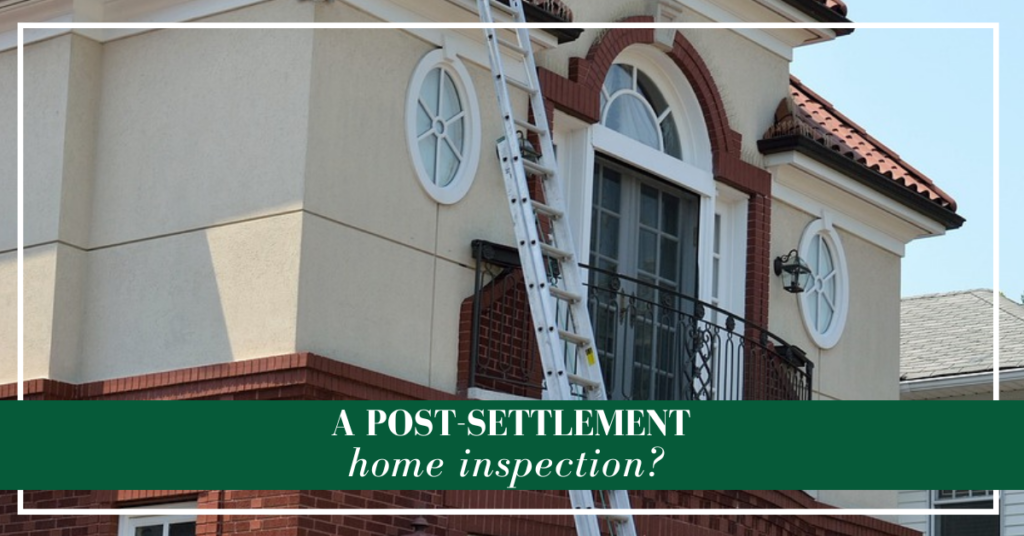
Don’t home inspections happen prior to settlement?
Historically, home inspection contingencies were standard when buyers were writing offers to purchase homes. The purpose: to discover any surprise problems and either terminate the contract or negotiate with the sellers for repairs or a monetary credit. However, due to the current low inventory and high buyer demand for homes, competitive bids often waive the home inspection contingency. If the seller has NOT done a pre-listing inspection, you should seriously consider having one done once you settle on the house.
Why bother with a post-settlement inspection?
Some might argue that it’s a waste of time to have an inspection once you’ve already closed on the house as, at that point, you can neither “return” the house, nor have any leverage as far as convincing the seller to cover any repair costs. While accurate, it’s still a very good idea to know if there are any significant problems that should be addressed. An inspector looks for material defects (systems or parts of the house not operating as intended). What if there is a structural problem? Or something in the electrical panel that is dangerous? Perhaps a leak from the waste line in the basement or windows that don’t lock? You may choose not to fix every item an inspector points out, but at least you’ll know what the concerns are.
What else does can an inspector tell me?
If you have a good inspector and you ask the right questions, you can make the most of an inspection.
- Price estimates: While an inspector can’t quote you an exact amount for a specific repair/replacement, most can usually suggest a range. Having a rought idea of what the costs are associated with problems you plan to fix is extraordinarily helpful.
- Priorities: If you ask, most inspectors can tell you which repairs should take priority, vs. which things might be able to wait for a couple of years before truly requiring serious attention.
- Age of systems/life expectancies Inspectors will tell you how old your HVAC components are (boiler/furnace/air conditioning) as well as how old the hot water heater is and they can usually give an estimate for the age of the roof. This information allows you to plan and budget, especially when considered in light of the priority list (above).
- How things work: Inspectors will usually be willing to show you the basics of how the systems work. For example, they will demonstrate how to replace the filter in a furnace, explain the concept of “bleeding” a radiator, tell you what to look for if you suspect a leak, show you how the thermostat works, etc. They will not give a full-blown tutorial, but typically provide enough information so that you have a starting point.
What should I do with the report?
Once you review the report and determine which things you may want to address, you may want to have qualified contractors come take a look and give you a clearer picture/estimate. This step may help you prioritize projects. Having the report (including the photographs the inspector takes) can make it easier for service people to give estimates, sometimes without even having to come out for a service call (which can save you money). My advice would be to save the report if you ever need to refresh your memory about the inspector’s findings. Obviously, a report is only a “snapshot” from the day it was done. Over time, as the house ages, new issues may come up and systems will wear out. So the report, by definition, will become outdated. That said, while new issues will arise, anything that was defective that you have not taken care of certainly isn’t going to magically fix itself. So that’s why I recommend keeping the report to look back on in case you forget about something that you might want to address. On a separate note, you may even decide to have a home inspection done at some point in the future, like after you’ve been in the house 10 years. You could think of it like going to the doctor for a check up, just to make sure everything is working as expected.
If you are relocating to the Philadelphia/Main Line area, please go to my blog page and search for posts using the relocation tag. Contact me to discuss your Philadelphia area relocation! jen@jenniferlebow.com/610 308-5973


Leave a Reply